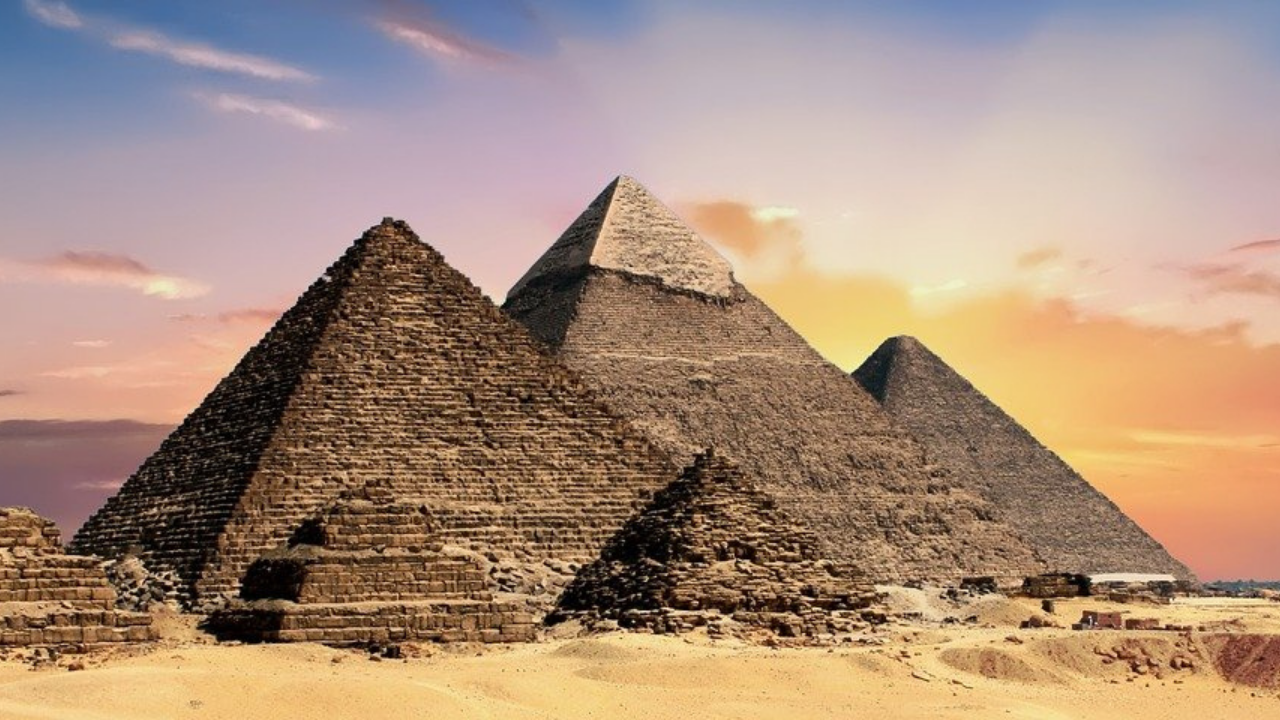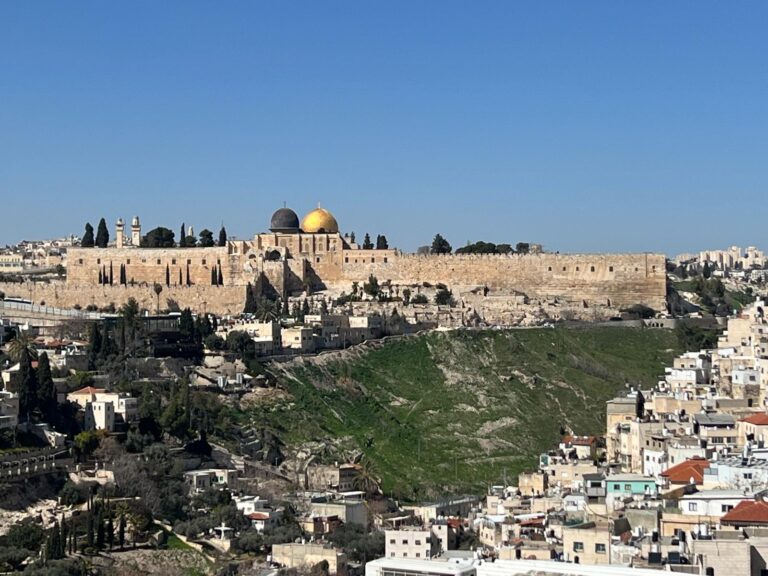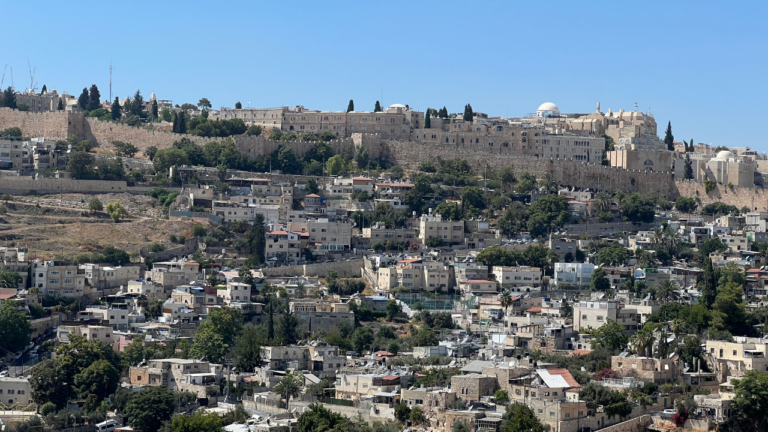Traveling Out of Egypt and To Jerusalem
The Jewish people left the Egypt in a haste. On the night of the first Seder they had to show their hurriedness by eating with their walking sticks and travel clothing. Then, they were rushed out by the Egyptians and did not have time for their dough to leaven.
Interestingly, though, this hurriedness seems to come to an end once they leave the borders of Egypt. The Torah says that God specifically led the Jewish people by the long route to the Land of Israel, as opposed to taking the shorter path through the land of the Philistines. Also, while much of the original Pesach ritual is reenacted every year by every Jewish family, one of the elements that does not transfer to future generations is the hurriedness. There is no halachik obligation to eat the Pesach meal in a state of hurriedness and readiness to travel.
In addition, the future redemption will be the antithesis of hurried. Yeshayahu makes sure to tell us that when the Jewish people return to Yerushalayim:
For you will not depart in haste, Nor will you leave in flight; For God is marching before you, The God of Israel is your rear guard.
What is the meaning of this? Why was the haste of the original redemption not copied going forward?
Perhaps, on a homiletical level, we can suggest that there is a difference between running away from something and running towards a goal. When the Jewish people were in Egypt, the primary objective was to get them out of their sordid material and spiritual situation. When one is intent on fleeing, hurriedness and haste is justified.
However, once they left Egypt, the Jewish people were free to pursue their higher purpose. This required a steady gaze and constant work. They would need to incrementally grow step by step until they were truly worthy of being called God’s people. Therefore, the journey to the Land of Israel would have to be along the long route.
The same is true regarding the return to Yerushalayim. This final journey of the Jewish people is long in coming as we need to develop ourselves to be worthy of it. Perhaps that is part of the reason why Yeshayahu describes the journey to Yerushalayim in the polar opposite terms as the journey out of Egypt. The quest to regain Yerushalayim will be actualized in a slow but steady manner, together with the growth of the Jewish people themselves.
In a sense, the Jewish people have directly experienced this gradual development of the return to Yerushalayim in recent generations. During the pre-state era the Jewish presence in Yerushalayim gradually grew. Then, in 1948 we gained sovereignty over much of the city but without the old city and Har HaBayit. Seventeen years later, the Jewish people gained Har HaBayit, but our connection to this part of the city is still faces challenges.
On the one hand, this is an unfortunate circumstance and we would rather have gained everything at once. Now that this process is unfolding, though, let us use this opportunity to incrementally strengthen our connection to our city. Through this merit, may God allow us to manifest our true connection to Yerushalayim.



